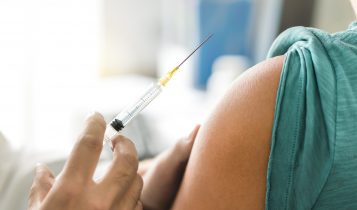Understand Your Rights. Solve Your Legal Problems


The world needs to prepare in combating complex molecular strains of invisible microbes. Researchers, scientists, and healthcare professionals working in pharmaceutical companies are striving hard to develop new vaccines to prepare for the existing and future health needs of the public. Because new viruses and bacteria are proliferating and mutating, vaccines need to undergo continuous comprehensive studies.
Vaccines stimulate the production of antibodies by the immune system. It works by exposing the body to the disease with just enough material to develop immunity but not cause severe signs and symptoms. Vaccines have been developed for viral diseases such as measles, flu, and polio. Now with the COVID-19 pandemic, people rely on the promising effects of vaccines in combating life-threatening complications of this viral infection. One of the common questions people raise is whether vaccines can cause health problems. This article will discuss the possibility of such.
Vaccines are the most effective way to prevent infectious diseases. Every year, they prevent 3 million deaths worldwide. However, in some very rare cases, it is possible that vaccines may cause health problems.
People need vaccines as vital protection against viral diseases. The vaccine helps a recipient’s immune system “recognise” the virus and deal with it in a stronger way. However, there are times when rare and isolated incidents occur, causing vaccine-related injuries, such as anaphylaxis, thrombocytopenia, or massive bleeding due to low platelet count and wrongful death.
For patients who are exposed to such health risks, talking to vaccine injury lawyers is a step in the right direction. Lawyers can help patients demand damages and charge negligent companies or vaccine administrators if there is negligence on their part. In many instances, health issues that are reported by some patients are not caused by the vaccine per se. Rather, it’s because of the mishandling of the vaccine.
Drug or pharmaceutical companies follow strict health and safety protocols to pass the series of checks by healthcare organisations and government agencies like the Food and Drug Administration (FDA). They conduct several trials for newly discovered vaccines over a five-year period to ensure everyone’s safety upon mass vaccination. However, there could still be a possibility of manufacturing error. Here are the examples of manufacturing errors:

Other examples of administration vaccination errors include the following:
Healthcare agencies are responsible for identifying vulnerable or high-risk groups for vaccination, such as patients with spinal cord injuries. They need to disseminate the right information to the public across various media channels and deployment of healthcare workers in local communities.
If healthcare workers fail to do these preliminary activities, vaccination could result in severe health problems. For instance, one of the contraindications of some vaccines is hypertension or high blood pressure. If the nurse fails to obtain the patient’s blood pressure with an existing medical condition, it could result in cardiovascular problems and even wrongful death.
Vaccines are the most effective way of protecting ourselves and our loved ones against infectious diseases. However, in very rare incidents, vaccines can potentially cause health problems, especially if the manufacturer was negligent in labelling and representing their product. There are many reasons that could result in vaccine-related injuries as discussed above. If you or a loved one is a victim of vaccine-related health problems and injury, talk to a personal injury lawyer as soon as possible to determine your legal options.





